As human beings, we will inescapably fall sick, get injured or feel unwell, touch wood. In which case, you will require medical checkup or treatment. In an already worrying situation, it feels extra bad to be in an unfamiliar country whose healthcare system is so different from your own. Which is why we’ve prepared this article to help you through the entire process of seeing a doctor in Japan. We recommend reading this in advance, just in case you ever need it.
Table of Contents
- What to do when you fall sick in Japan?
- Basic Process of Seeing the Doctor in Japan
- What if I don’t have insurance?
- Emergency Medical Treatment (Late Nights, Sundays, Holidays)
- Takeaway
What to do when you fall sick in Japan?

The healthcare system in Japan may be very different from your home country which is why reading up about it beforehand, just to get a gist of it, is important because you never know when you or a friend might need this information.
First things first, keep in mind that there are different types of medical institutions in Japan depending on the severity of your injury and time of use. Medical institutions can be divided into 2 broad categories of hospital or clinic.
Which to go? Hospital or Clinic?
In Japan, the common practice is to visit a clinic first when injured or ill. The exception is of course when there is a huge emergency due to severe injury or sickness, in which case you should get an ambulance by calling 911.
When an ambulance is called, you don’t get a choice of what hospital you get sent to. It is the paramedics’ job to assess the patient’s condition, provide on-site treatment if necessary, and find a hospital to take the patient in.
For anything less than an emergency, you should visit a clinic. Though this comes with its own set of problems, which specialist clinic should you go to?
Which specialist clinic to see?
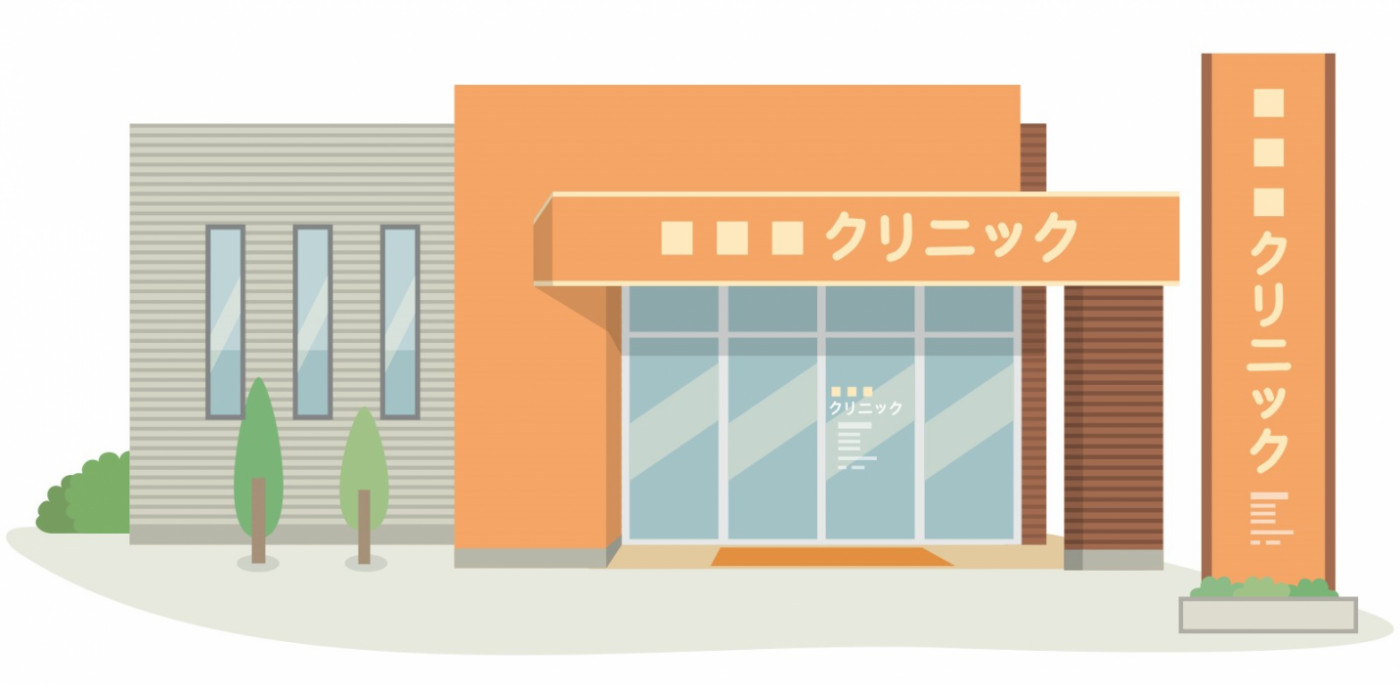
There are no general practitioner doctors and clinics in Japan. Instead, every doctor is a specialist in an area of medicine and works in a specialist clinic. The closest thing to a GP doctor is the field of「内科 naika」internal medicine that deals with treatment of internal illness - quite a broad range.
Without further ado, let’s look at the types of specialist clinics in Japan that you should know about and their fields of specialty.
|
Specialist Clinic Type |
Medical Field Speciality |
|
「内科 naika」 |
Internal illnesses and treatment with medicine |
|
「外科 geka」 |
Surgery |
|
「産婦人科 sanfujinka」 |
Obstetrics and gynaecology: women’s health and pregnancies |
|
「眼科 ganka」 |
Eye |
|
「耳鼻咽喉科 jibiinkouka」 |
Ear, nose and throat |
|
「小児科医 shounika」 |
Paediatrics: babies and children |
|
「泌尿器科 hinyoukika」 |
Urology: Urinary tract, bladder, kidneys, male reproductive organ |
|
「皮膚科 hifuka」 |
Dermatology: skin problems and diseases |
|
「精神科 seishinka」 |
Psychiatry: Mental disorders and stress |
Letter of Introduction to Hospital
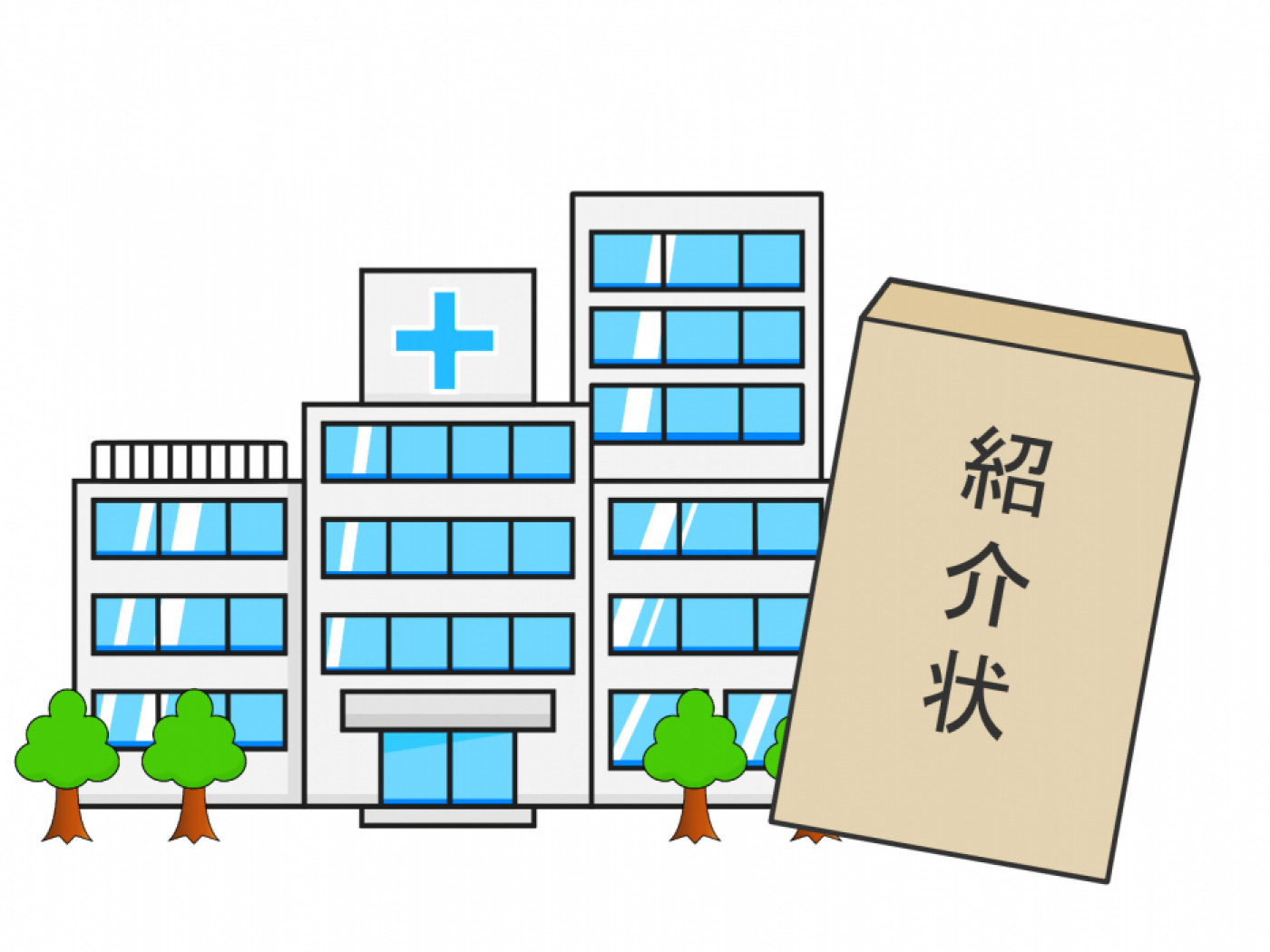
In some cases, the doctor you see may not be able to provide you the treatment you need, or maybe they are unable to diagnose your illness and need to send you somewhere better equipped with advanced medical equipment. In this case, the doctor will prepare a 「紹介状 shoukaijyou」letter of introduction reccomending you for treatment at a hospital.
It is possible to go directly to the hospital for treatment, but without the letter of introduction you will incur extra cost of 「選定療養費 sentei ryouyouhi」. This is a special fee charged to patients who don’t have a letter of introduction. The fee is charged not just for the first visit but also subsequent follow-up visits at the hospital though at a lower price.
Writer's Pick
Basic Process of Seeing the Doctor in Japan


Making a Doctor’s Appointment
The rule of thumb is to always make an appointment especially since many clinics have implemented appointment-only systems (予約制) due to the coronavirus situation. If it’s urgent and appointments are fully booked, at the very least give the clinic a call to see whether they accept walkins.
Note that first-time patients are generally not allowed to walkin. Consultations for first-time patients are usually longer as doctors need to ask you about your medical background and history. To guarantee a visit and not waste your valuable time, make an appointment beforehand.
In any case, it is always best to check the clinic’s website for the latest information.
What You Need to Bring
Bring with you the following items for every doctor visit:
Insurance Card (保険証 hokensho)
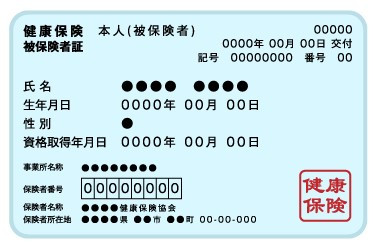
With a valid insurance card, you only need to pay 30% of your medical expenses. Note that you don’t need to show your insurance card if visiting the same clinic within the same month, but just bring it to be safe.
Patient Registration Card (診察券)
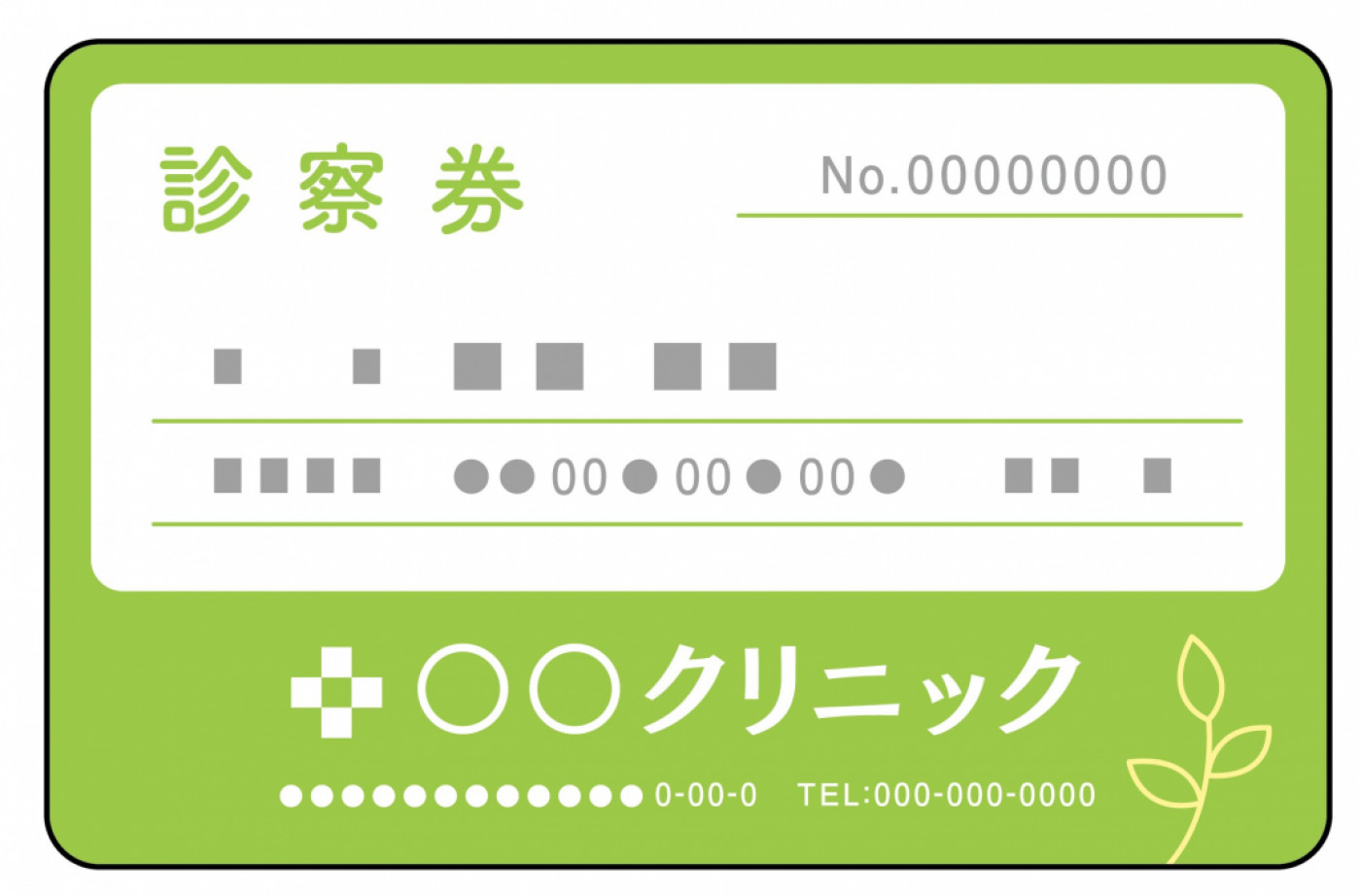
A patient registration card is issued to you when you register at a clinic/hospital for the first time. It is usually required for booking appointments after your first visit.
Medical Booklet / Medicine Diary (薬手帳 kusuri techou)
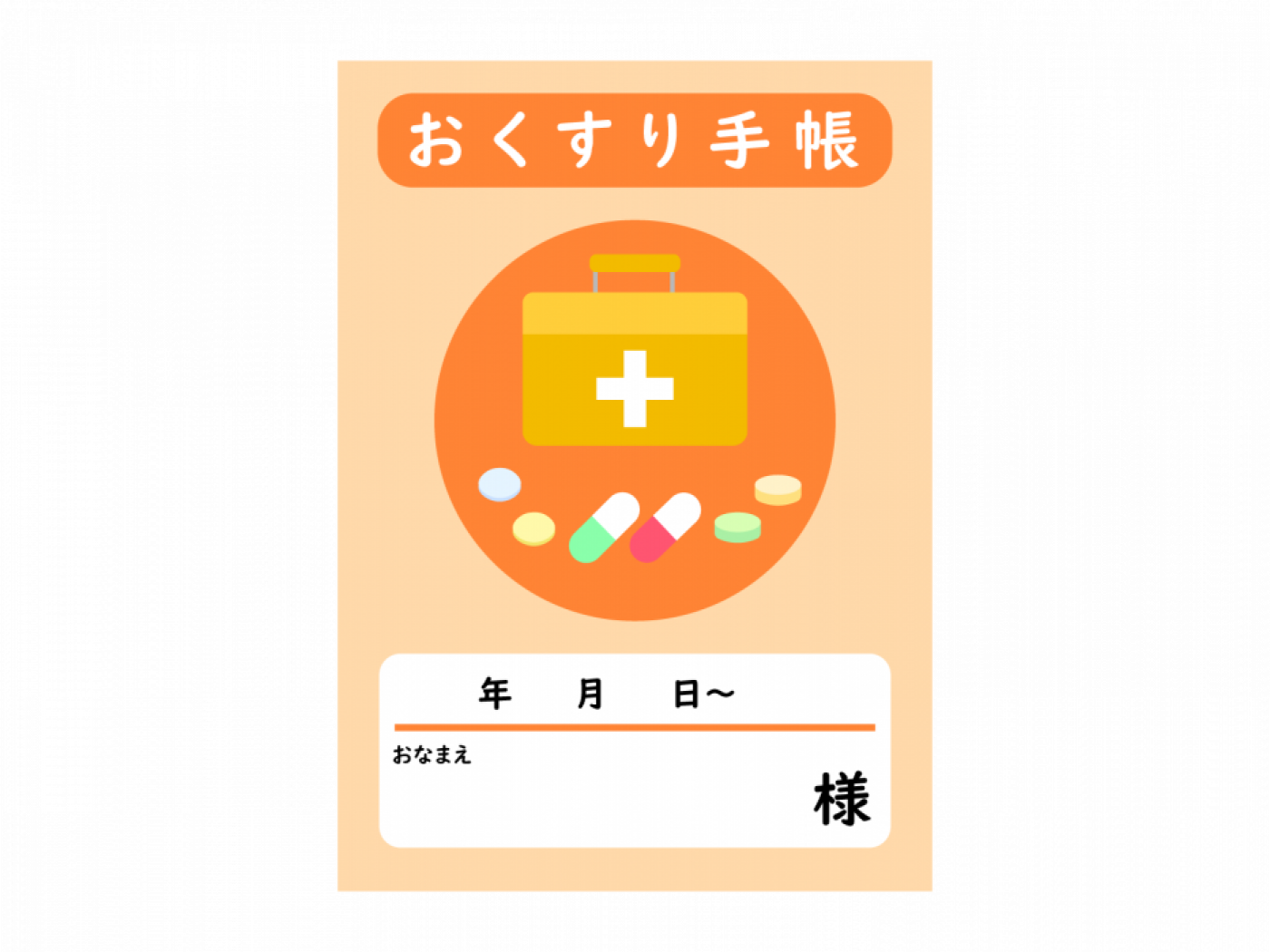
A small book or diary for recording your prescribed medication. The pharmacy will paste a sticker containing information about the medicine you received that day inside the booklet. If you forget to bring it, they will give you the sticker to do it yourself. E-booklets are also available at some pharmacies nowadays.
It is also useful if you need to inform the doctor what medication you are on.
Cash
Most clinics only accept cash. Unless it’s not your first visit to a clinic you already know accepts cards, it’s safer to bring some cash with you.
Paying Your Medical Expenses
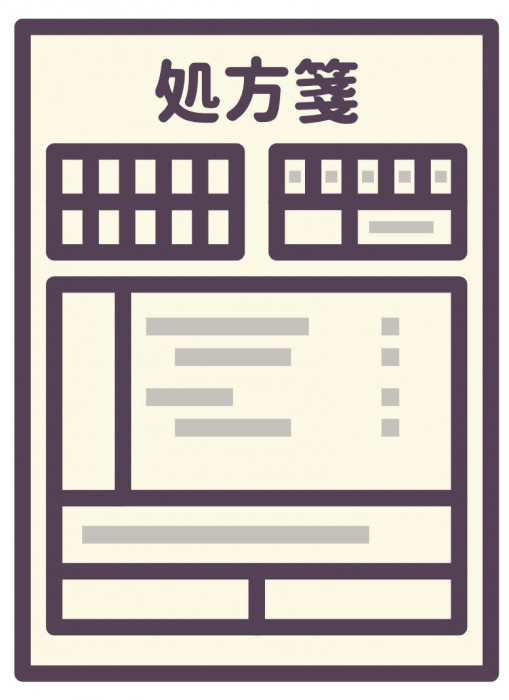
Done with your consultation, it’s time to pay the bills. For insurance holders, you’ll only need to pay 30% of the full price. If the doctor prescribed you medicine, you will receive a prescription (処方箋 shohousen) to buy your medicine at the pharmacy.
Medical Expenses Deduction
Quite an important bit of information, collect your receipts for medical expenses including medicine. If you pay more than a certain amount a year (determined by your income), you can apply for medication expenses deduction (医療費控除) when doing tax return to get tax deductions.
※ NTA, “No.1120 医療費を支払ったとき(医療費控除)”
High-Cost Medical Expense Benefit
If the amount of medical expenses incurred by an insurance holder within the same month (first to last day) exceeds the ceiling price (self-paid portion), he/she can apply for the High-Cost Medical Expense Benefit (高額療養費). Under this system, the exceeding amount of the ceiling price will be subsidised. But only for that month, once the month passes everything resets.
This is a system designed to ensure people are not overburdened by medical expenses. The upper limit amount depends on age and income.
※ Japan Health Insurance Association, “高額な医療費を支払ったとき(高額療養費)”
Getting Your Medication
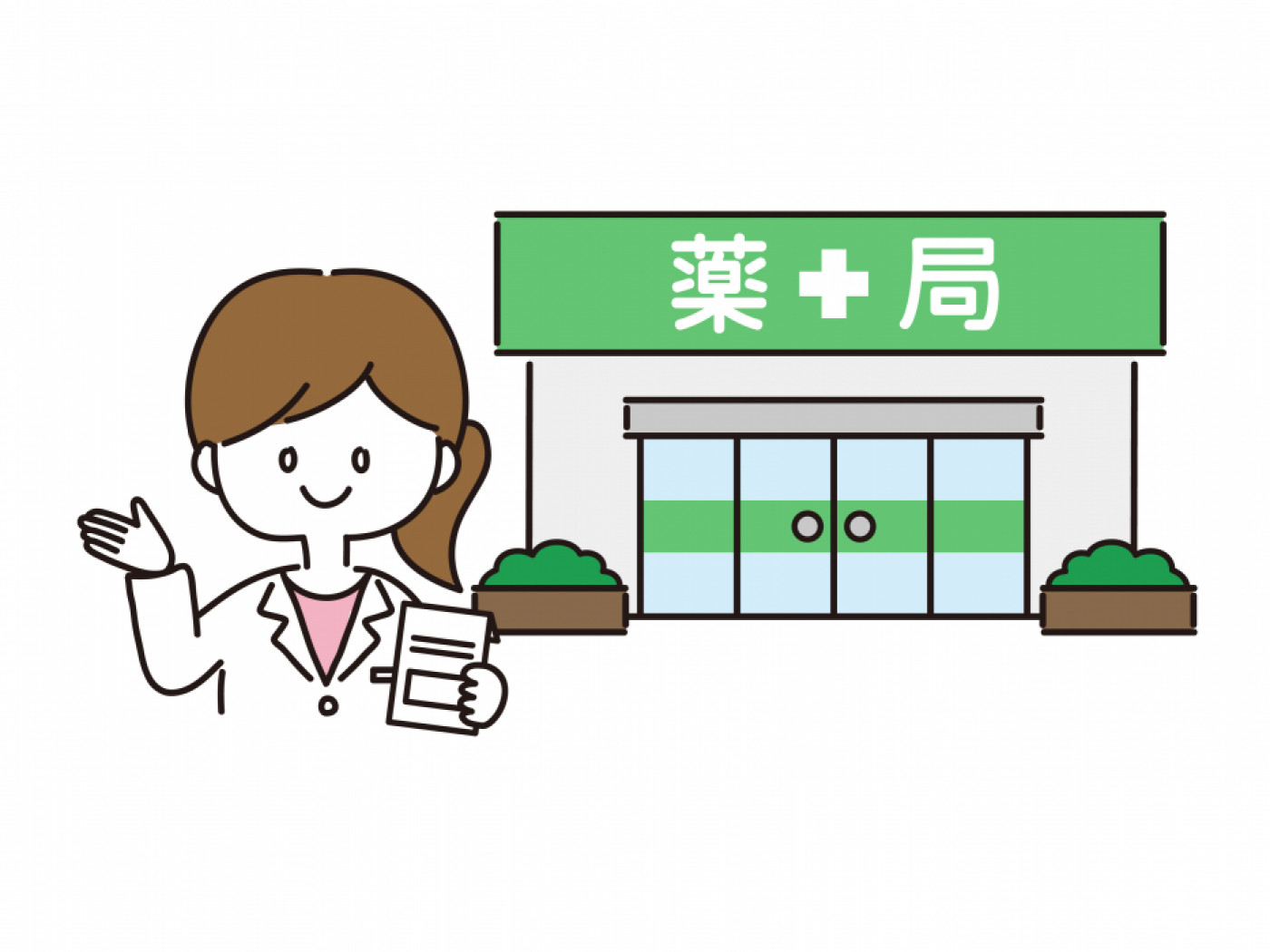
Go to a pharmacy (薬局 yakkyoku) to get your medicine. Your prescription is acceptable at any pharmacy that deals with prescription medicine. Find 「調剤薬局 chouzai yakkyoku」pharmacies that specialise in dispensing medicine, some drugstores (ドラッグストア) deal with prescription medicine which they indicate with these words -「処方箋受付 shouhousen uketsuke」, prescription reception.
Prices are also 30% of the full price for insurance holders.
What pharmacy to go to? Nearest to the Clinic or Nearest to Your Home
Note that though your prescription can be accepted at any pharmacy, there is an issue of medicine availability. This is especially so if you are prescribed specific types of medicine. If you want to get your medicine as soon as possible, visiting the specialist clinic’s nearest pharmacy is recommended. These types of clinics are categorised as「門前薬局 monmae yakkyoku」and are located right next to or right in front of specialist clinics. They are better-stocked with medication in the particular area of medicine. For example, anti-depression medication for pharmacies near a psychiatrist clinic, or birth control / hormone pills near a women’s clinic.
You can also choose to go to your usual pharmacy. If they don’t have it in stock or have run out of supply, the pharmacy can help order your medicine which will take a day, days or even a week. Depending on the pharmacy, they may offer complimentary service to post you the medicine when they arrive.
Note that prices at different pharmacies may differ. Pick a pharmacy that’s best for you whether it’s by urgency, convenience, or price.
First Time at a Pharmacy
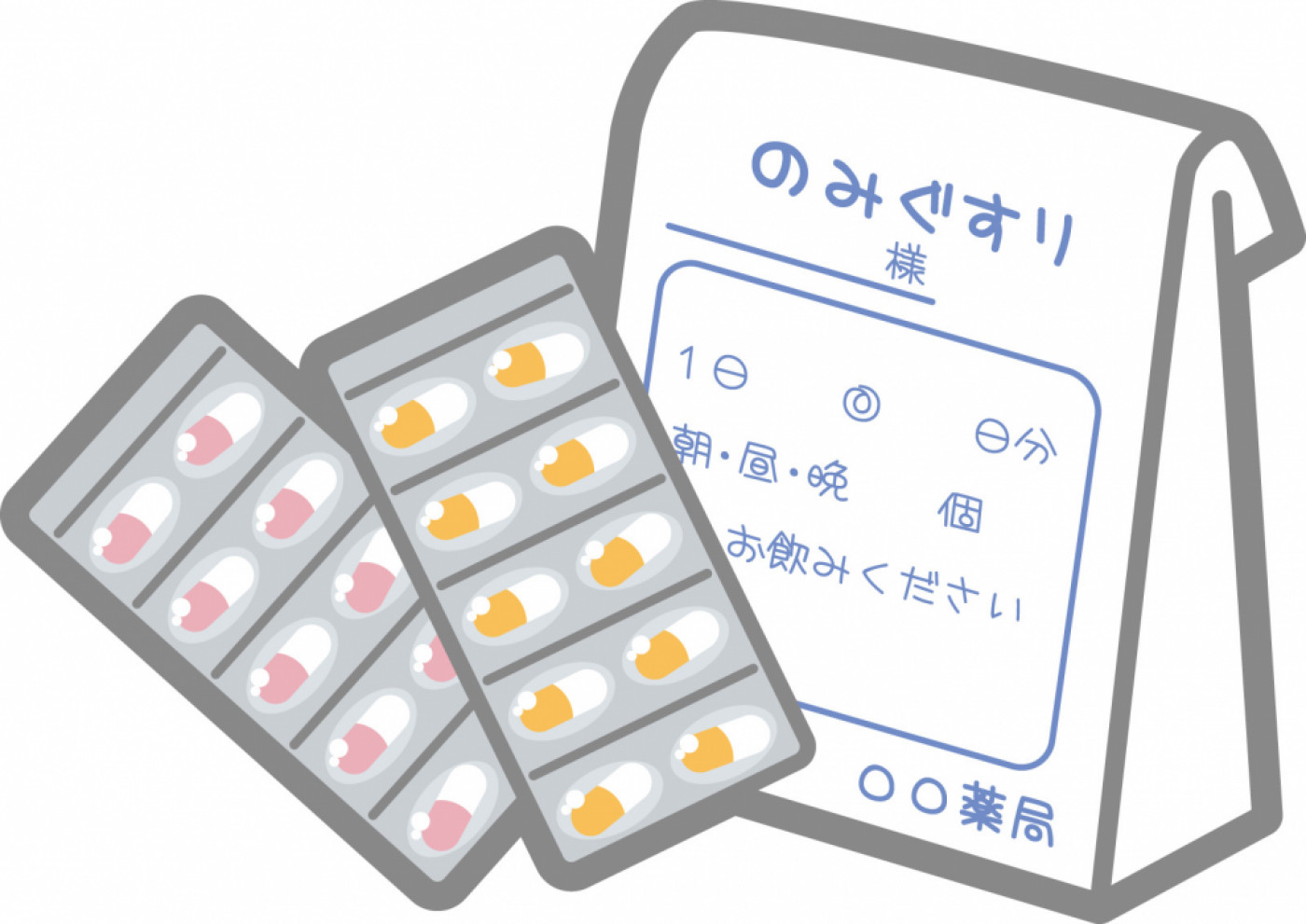
If it’s your first visit at the pharmacy, just like for the clinic, you will need to fill up a registration form. Questions asked will include existing medical conditions, are you taking medicine currently if so what, any allergies to medicine, lifestyle habits (smoking, drinking alcohol), and more.
One question you will come across is whether you want generic medicine「ジェネリック医薬品」. Generic drugs are created after the original medication’s (新薬(先発医薬品)) patent has expired. These drugs are recognized by the government to work the same as the original drug and safe for consumption. They are much cheaper than the original branded medication due to lower development costs. Note that some minor differences may exist between the original and generic drug, for example side effects and compatibility with other medications. The pharmacist will advise suitability for you based on your medical book (薬手帳) and your medical background (patient registration form).
※ Cabinet Office, Government of Japan, “安心してご利用くださいジェネリック医薬品”
What if I don’t have insurance?
Even if you don’t have insurance, you can still receive medical treatment in Japan no problem. This applies to emergency medical treatment (below).
Pay Full Price of Treatment
Since you don’t have insurance, that means you cannot enjoy the benefit of insurance prices which is paying only 30% of the full price. Non-insurance holders must pay the full price.
For example, if the full price of treatment is 1,000 yen:
-
Insurance Holders: Pay 300 yen out of pocket
-
Non-Insurance Holders: Pay 1,000 yen out of pocket
This is why travel insurance is so important for tourists visiting Japan. The price we used in the example is an imaginary one, realistically if your condition requires seeking treatment it will cost more, plus there’s medicine costs too.
Don’t Have Your Insurance Card With You
Let’s say you’re visiting the doctor but you don’t have your insurance card with you, maybe you forgot to bring it, misplaced it, or you just got a new job and your insurance card is being processed.
In such a case, let the clinic know your situation, that you have insurance but you don’t have your insurance card with you right now. Then, pay the full not-insured price. When you’ve received your insurance card, apply to your insurance provider for a refund. You will receive 70% of the full price.
Emergency Medical Treatment (Late Nights, Sundays, Holidays)
In Japan, most clinics have opening hours from 9:00 to 18:00 (check individual clinic’s websites for accurate information). Some clinics operate on Saturdays for half a day, and most of them are closed on Sundays and public holidays.
What do you do then if you need emergency medical treatment at those times?
Call 911 for the Ambulance
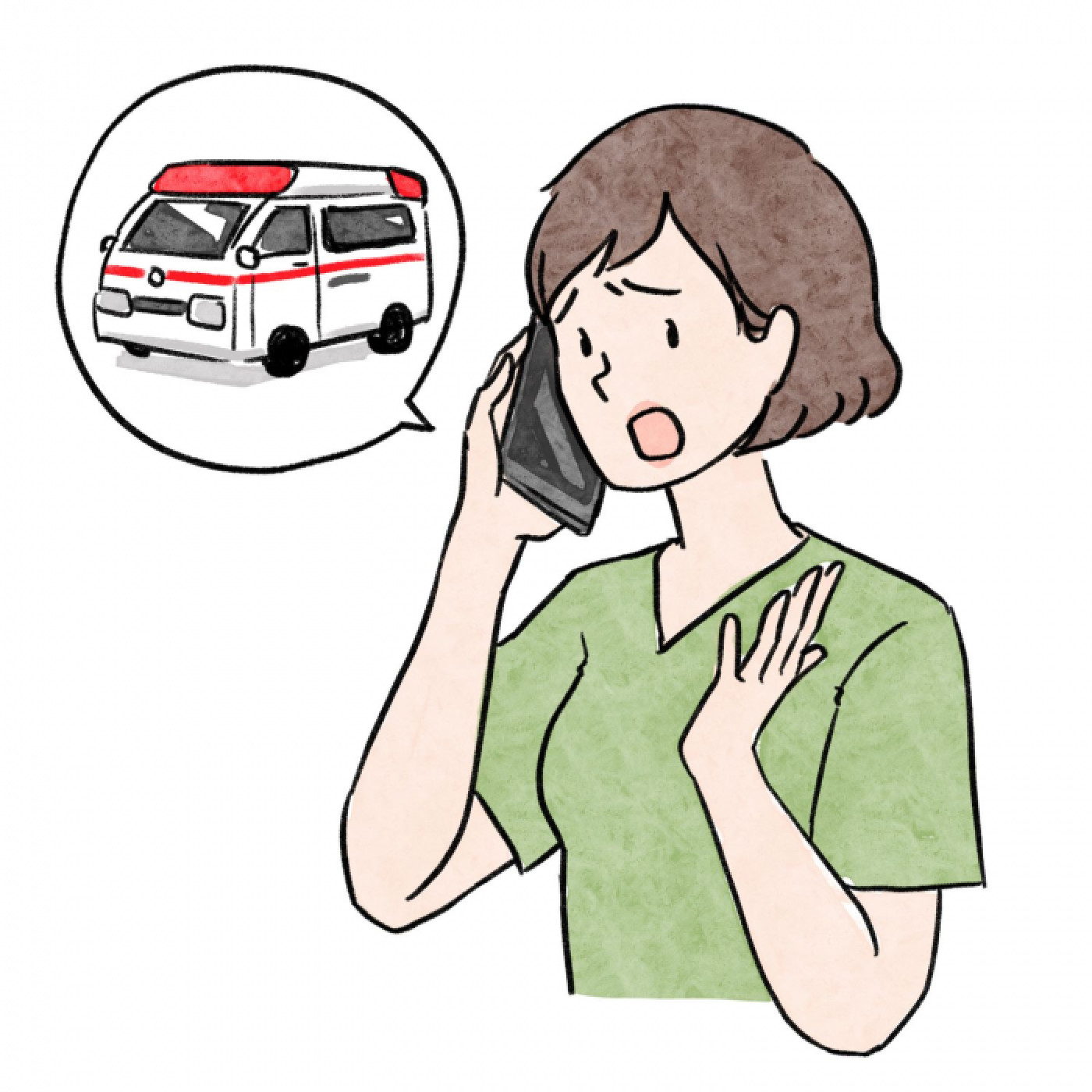
If the situation necessitates it, call the ambulance that operates 24/7 all year round.
If your Japanese is not good enough to explain the circumstances, enlist help from a Japanese neighbour telling them 「救急車を呼んでください。kyukyusha wo yonde kudasai」.
Emergency Room Outpatient Clinic
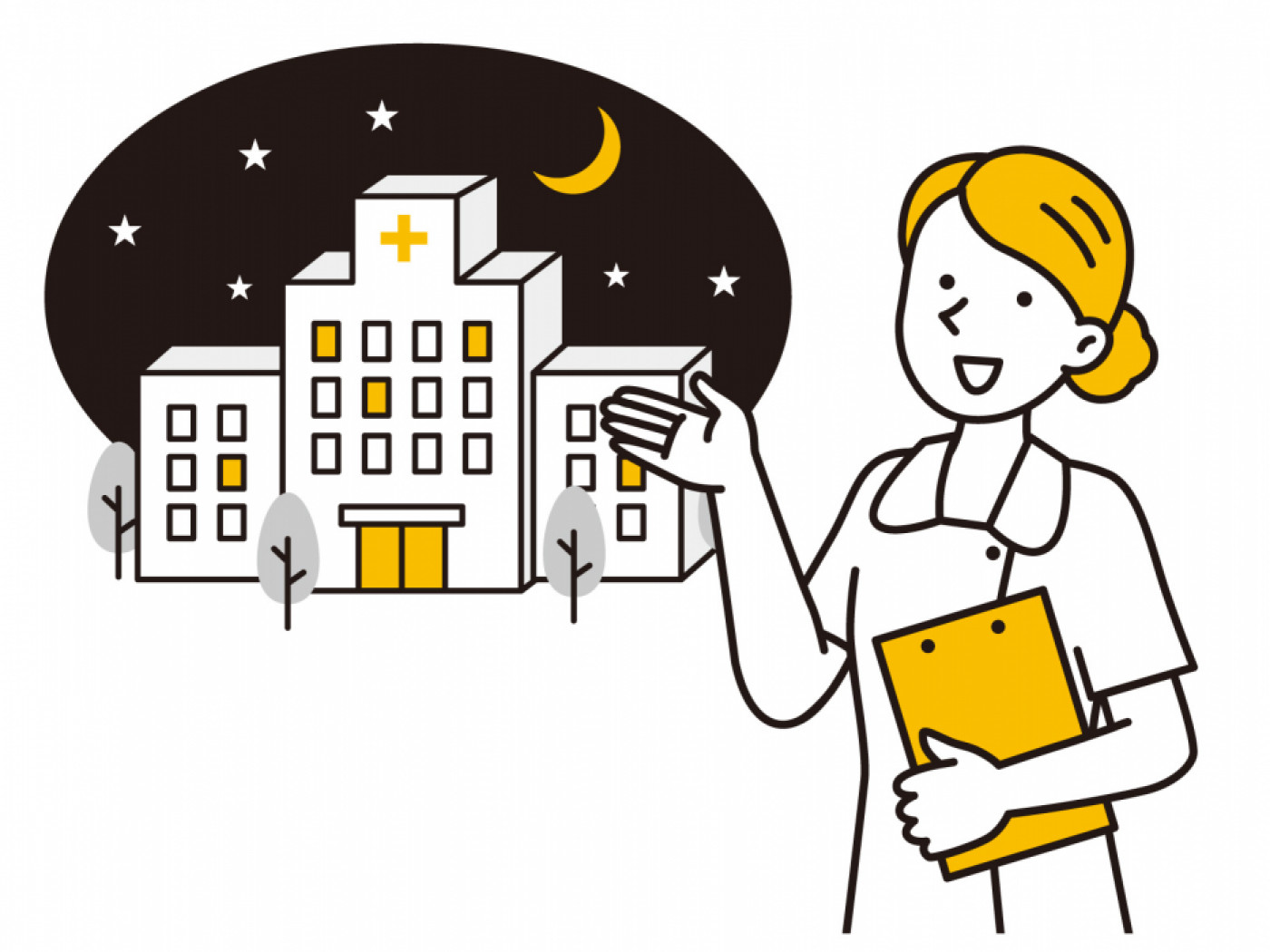
Check your area’s Medical Association and Ward Office website for facilities that operate outside the usual hours. Keywords in Japanese you are looking for are
-
「休日医療機関 kyuujitsu iryou kikan」 medical institutions that operate on holidays
-
「休日・夜間診療 kyuujitsu・yakan shinryou」holiday and night-time medical care
-
「急患診療 kyuukan shinryou」emergency medical care
Call beforehand to make sure they can accept patients. Major cities may have foreign language support. There are also emergency dental clinics and paediatric clinics.
List of Emergency Medical Care / Hospitals to Help You Out (by area)
Expensive Medical Expenses for Out-of-Hours Medical Care
A surcharge is incurred when receiving medical care out-of-hours. The amount of surcharge is different depending on usage time of services - out-of-hours, Sundays & holidays, late night (22:00~6:00). A super rough guideline but expect medical costs to be at least 2x or 3x that of regular hour visitations.
※ Japan Health Insurance Association, “時間外受診は割増料金がかかる”
Takeaway
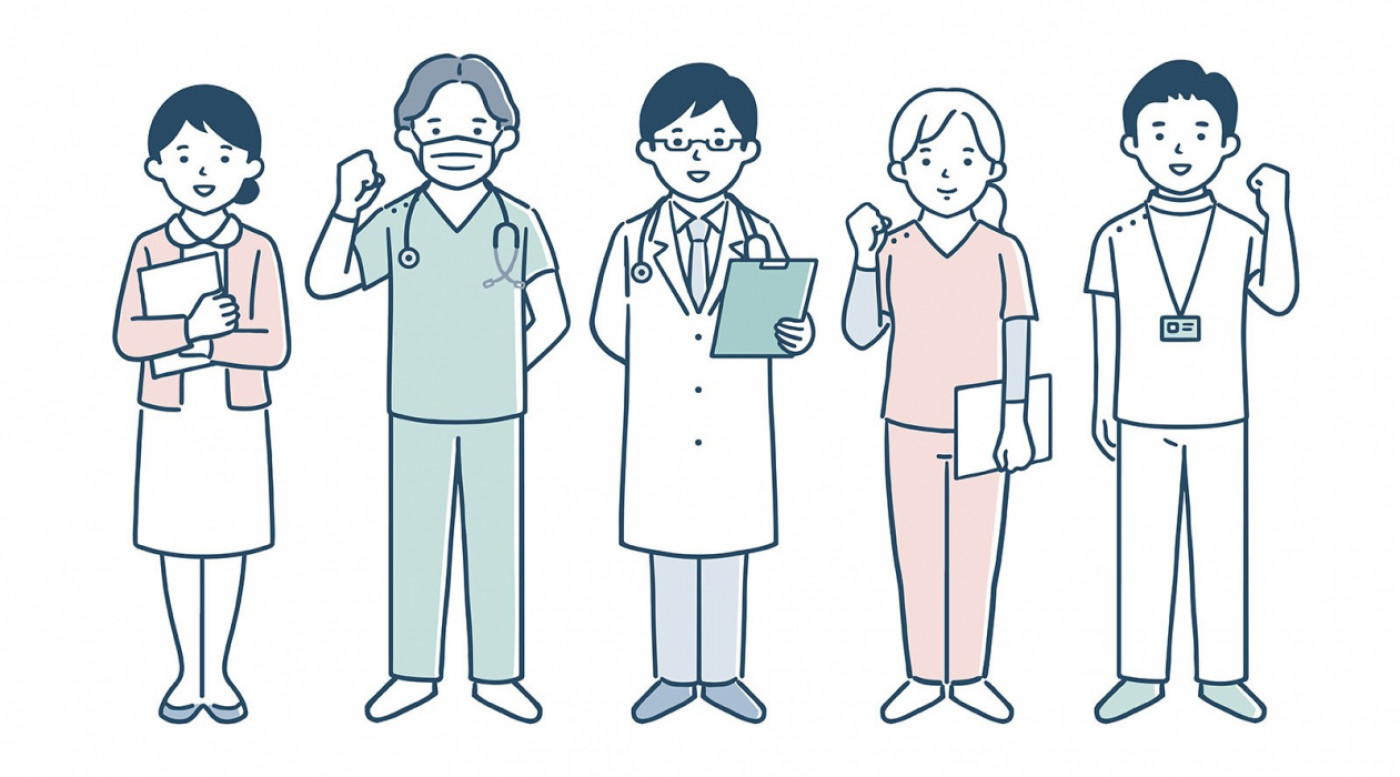
This time we’ve covered an especially important article for those living in and coming to Japan. This article focuses on medical care at clinics but there are many other health visits and medical institutions to cover. Like dentist visits, hospital admissions, annual medical checkups, vaccinations and more which we will cover in time. We hope everyone stays safe and healthy.




















.jpg)














